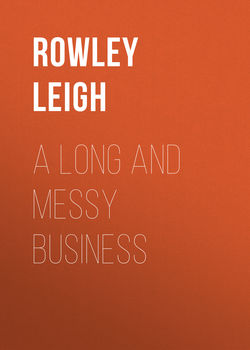Читать книгу A Long and Messy Business - Rowley Leigh - Страница 25
На сайте Литреса книга снята с продажи.
ОглавлениеFrench Nursery Food
Far Breton, or Custard Cake with Prunes
When we think of nursery food, most of us are acutely
nationalistic. One cannot imagine toad-in-the-hole, milk
pudding and junket being consumed in any other country.
Some of us never escape the grip of the nursery and are
happier eating very bad food than going to any damned
foreign restaurant, while others so loathed the food of
their childhood that they are forever sworn against it. If
anything, I belong in the first camp, even if I have happily
migrated from the world of club food and institutionalised
deprivation. I liked almost everything I was given as a
child, from Nanny’s Mess (a sort of Irish stew with scrag
end of lamb and pearl barley) and spam fritters and, not
even but especially, prunes and custard.
I am always surprised by the degree of animosity the
poor old prune provokes. Even the great Jane Grigson
seems to have been infected with this loathing: ‘In a
masochistic and patriotic egotism of suffering, I had
always thought that prunes and rice pudding were unique
to Great Britain (like strikes). Alone in the world we
suffered, or made our children suffer.’ Yet, soaked in hot
black tea – brought to a simmer after twenty minutes for
an extra little nudge towards plumpness – and served with
custard or cold double cream, prunes are a quietly enjoyed
pleasure, each stone arranged on the rim of the soup plate
to determine future fortunes (‘tinker, tailor…’). This is
purely subjective, but the objection, made with a snigger,
that prunes are unduly laxative, is a low and unkind slur
on a discreetly helpful fruit.
The prune is not remotely locked in a uniquely British
past. The French – in the Southwest where they are
cultivated, in the Loire Valley where they often accompany
pork, or in the Northwest where the dish below originates
– highly esteem the prune. The Far Breton may not be
French nursery food but it certainly inhabits a similar
realm where food provokes a kind of reverie of the past.
‘Far’ is a sort of cake, originally quite savoury, and possibly
a stuffing. It is an abbreviation of the dialect ‘farz’, itself
surely derived from ‘farce’ (in the sense of forcemeat rather
than trouser-dropping stage comedy). Being a simple
batter pudding, it is similar, I daresay, to a clafoutis, but
it is superior in as much as it is best eaten cold and is
comparatively delicate and distinctly moreish. It is also
childishly easy to make.
39
January
